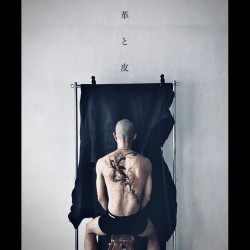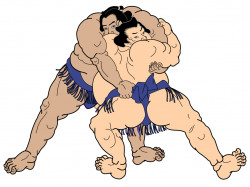
Originally published on metropolis.co.jp on June 2013

Veteran Van Halen frontman and rock legend David Lee Roth has called Tokyo home for nearly a year. It might seem odd that an American rock star would settle in the Land of the Rising Sun—but it’s something that he ‘s done time and again in other cities over the years. His interest in Japan, though, goes way back, as Metropolis learned when we sat down with him for a lengthy session at his city residence.
One thing is clear from the start: living here is about continuing his education. “I’m in school every single day—this is Roth University, by the way,” he says, getting right to it. “I do language every day for two hours… I have a go sensei, a professional, who comes over two times a week. I love that game.”
We ask this long-time martial artist if he’s studying kendo in Japan—and he quickly corrects us. “No, it’s not kendo. It’s kenjutsu. And I’m going for my menkyo kaiden and I’ve been doing that since I was 12.” He explains that was the first time he held a sword in his hand. His father, an eye surgeon, had a lot of Japanese patients and Roth grew up immersed in Japanese-American culture in his hometown of Pasadena—an area of California that housed internment camps during World War Two. “I grew up next to Mr. Yoshida’s house—he was a kendo instructor,” he says. “Today, I’m the master of the six-foot staff —it’s actually a shower curtain rod, but it just looks great in the lights and I use it on stage.” He laughs—something David Lee Roth does a lot, flashing his pearly whites and making you feel as if it’s the first time he’s told the joke. “The first time I saw an iaido kenjutsu demonstration with an actual kata I was maybe ten years old? Eleven? And I held that in my hands and… Careful what you show your kids..!. Inazuma!…Crrrraashh… Lightning…!” He hasn’t let up since.
“And I do sumi-e [Japanese ink painting] as well,” he continues. “I always wanted to go to art school. I always knew there was such a thing as perspective even though my parents routinely accused me of never having any.” He laughs, and then quickly gets serious. “But now that I’m here I’ve found a very serious professional teacher. My sumi-e teacher is right out of the Meiji restoration. He’s got the little goatee and he’s a man of very, very few words. He reminds me of my Russian chess teacher. And now we’ve grown to become friends, ya follow? It’s part of the education. It’s part of getting to know the neighborhood, but it’s also sharpening the sword—mentally, spiritually, physically—because when I go back to show business in the United States… all of show business is taking a serious beating. It’s war. It’s conflict.”
After bringing up showbiz, I have to ask if he’s working on any new music in Tokyo. “I’m in and out of the studio over in Ginza, routinely. Great studio, superb studio.” But it’s not new music he’s recording—it’s his radio show, The Roth Report, and the radically different solo variety show, Tokyo High Power Style. “I invented the title. It’s supposed to be like ‘Walkman’—like no white guy would ever say that but when you do it seems to work for you,” he laughs. “So that’s me trying to sound Japanese-ish [in his best salaryman-style English] ‘To-ki-o Ha-i Pa-wa— Su-ta-i-ru.’”
It’s evident he’s riding a surging wave of creativity and lateral thinking in Japan. “There’s more latitude here, ‘gap,’ I think it’s called. There’s a gap and this is one of the things [sumo champion] Konishiki has shared with me—is that folks find it ‘interesting’ if you do something that’s unexpected or incongruous.”
He feels that popular music—and show business in general—is much more restrictive back in the US where you have to be known for one thing and if you try something different, it’s usually not received well. He cites an example: “Advertising Boss Coffee in the US—whoa! They’re gonna make fun of you on Saturday Night Live. Here it’s kind of expected. I’d love to do a Boss Coffee ad. Here, I’ll do it now: [low yakuza voice] ‘Who’s boss now?’” He lets out another big laugh. “It’s pretty simple, but it works. You couldn’t do that in the United States, and for me—in rock and roll—to do something that is all ‘floor’ music let’s call it (because it’s house mix, it’s dance, it’s R&B, funk, whatever, I call it ‘floor’) for me to even participate with floor music and tell all my stories along with Japanese translations… “ he pauses for effect. “Well, we’re not sure. Jeez you changed your hat, Bob—you’re not a cowboy anymore.”
For Roth, who broadcasts Tokyo High Power Radio Report in both English and Japanese along with his assistant, Etsuko, it’s not about guests or sticking to musical styles—it’s about exploring and education. We ask if he brings in any of his famous Japanese friends or musicians as guests. “I’m not so interested in the battle for guests. We talk about websites, we’ll talk about the blogosphere, the internet… A lot of my colleagues have reached back in time, 1970s style to replicate what’s going on in radio and perhaps even more on talk show television—and it becomes a battle for guests. Whose guests are better? Who has more guests? And, well…” he stops. “How many lead singers in a rock band does it take to screw in a light bulb? The answer is one: You hold the bulb and wait for the world to revolve around you… [laughs]. Yeah, I’m not really interested in guests. I use as my template Mark Twain, who also traveled the world.” His concern, it seems, is to enlighten those that listen—though he of course teaches on subjects of his own mysterious choosing. “As you find your way through The Roth Show you’re gonna learn things. The last episode, Konishiki mentioned it right here. He said, ‘Wow! I learned a lot about radio! I didn’t know the history of FM radio and why the DJs [baritone FM voice] talk. So. Slow.” He laughs again but it’s clear he’s enjoying his new didactic role.
We ask what the perfect day in Tokyo is for Diamond Dave. “It’s not going to be perfect for most people,” he says. “Most of my day is spent is some variation of school or transition in between. It starts off at three in the morning because I’m running the show [Van Halen’s tour] from up the balcony up there on my headset… We’re planning now for everything that happens next season… Internationally we’ll probably do 50 shows outside of the United States. Then I go back to sleep, you know, it’s a lot of business. Then school starts for me at nine in the morning and I’m done at noon. Usually three times a week I’ll have sumi-e and then again there’ll be three times a week when I go and train with the sword. Weekends my form of recreation is go. It’s not to most people’s taste.”
How long does he see himself staying in Tokyo? “I’m based out of here now.” So he’s calling it home, then? “Yeah. And I travel back and forth. For me the long flight means I get to read a whole book without phone calls. I’m still a book reader. I have a stack of books that don’t get touched while I’m home. Step in to that airplane, ‘Ahhhhh.’ I can read a whole book on a one-way flight.”
The highly content and independent Roth says the only thing missing is his dog, Russell. “His inoculations are just about done. He’s an Australian cattle dog—he’s a Queensland Blue. Next time we do an interview here, you’ll see Russ. Russ travels with me everywhere—we did fifty-five cities together on the last Van Halen tour. After that, I’m happy.”
Fortunately Russ will be around for Van Halen’s dates in Japan. “We’re playing for two weeks, you know, it’s the devil’s rush. We’re playing Nagoya, Osaka and Tokyo.”
We end on his perceptions of day to day life in Tokyo for those of us that come to live here—how it seems to fire them up.
“It does for me. The ideas are much more myriad, and much more complex and constant here. And you know what? A lot of it comes from the interaction of people on the street. ‘Sumimasen’ style, you know, just that simple respect and the simple acknowledgement of others— it’s pretty rare in the US.”
Van Halen plays Tokyo Dome on June 21







